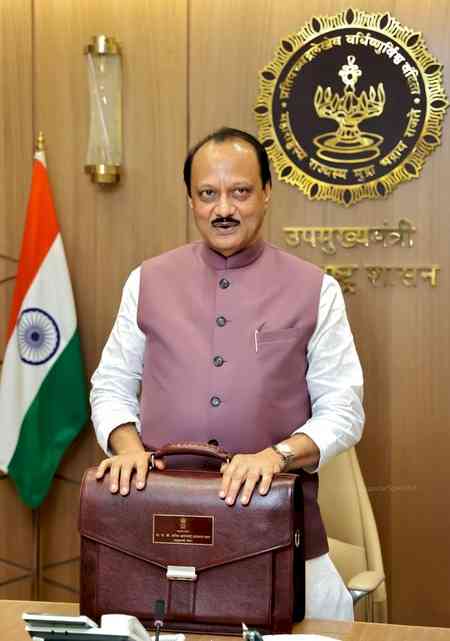Year Ender: Quotes from Auto industry

Vikas Bajaj, President, AIFI (Association of Indian Forging Industry)
“After the second wave, the industry is still facing challenges. The Indian Forging Industry is currently going through a difficult phase. The sector is always confronted with new challenges. The industry is largely concerned about the lack of semiconductor chips, which has also had an impact on exports. In addition, the increase in steel prices has harmed the Indian forging industry. It is the most important requirement in the forging sector and the current price increase has disrupted the supply chain. The advent of "Electric Vehicles" will also have a direct impact on the forging sector, as it will reduce demand for moveable parts used in vehicles, resulting in significant unutilized forging capacity. However, the industry continues to support our government's green initiatives. Furthermore, we are optimistic about 2022, anticipating that the semiconductor shortage would be resolved by the second or third quarter of 2022. On the new Omicron variant, I believe it will be existing, and such variants will continue to emerge; we will have to live with it and seek to keep our employees safe by adhering to all health and safety regulations.”
Ashwath Ram, Managing Director, Cummins India Limited
"2021 started positively with signs of visible business growth trends after Wave 1 of the Covid 19 pandemic. Wave 2 from April to June caused massive devastation resulting in constrained economic activity and severe loss of lives. The second half of the year came in as a ray of hope with the gradual recovery and stabilization of the business environment. Cummins is well-positioned for growth as economic activity gains momentum, and we continue to witness strong demand for our products and services. This rising demand is encouraging; however, significant constraints in the global supply chain continue to pose challenges for our business and our customers. These constraints have resulted in rising material costs, high logistics expenses, and other manufacturing inefficiencies. We met these challenges successfully driven by the agility of our employees, great product launches, the faith of our customers, and the support extended by our suppliers. As we march into 2022, our priority continues to be the safety and well-being of our people, powering our customers and communities, focusing on improving margins, and ensuring our company's continuity in the future.
From an industry perspective, 2021 has been a challenging year. The uncertain turn of events due to Wave 2 of the pandemic resulted in significant disruptions in the global supply chain, leading to an extended period of shutdowns, material and labor shortages, and higher costs beyond forecasted expectations. With economic revival happening gradually and strong support from the Government of India for driving manufacturing growth through initiatives such as: Make in India and Atmanirbhar Bharat, PLI scheme, increase in FDI, push for developing industrial corridors and smart cities, we are hopeful that 2022 will witness a strong revival and upward trend in business performance.
For Cummins India, 2021 was a year of agile strength and consolidation. While 2020 taught us all to be resilient, 2021 was a further step up in navigating through disruptions and ambiguity and demonstrating agile strength. We learned that the best thing to do to respond to a crisis even when the path ahead does not appear very clearly is to continue moving with purpose and determination. It also made us realize that the shift in working is not transient but here to stay. "Flexibility" at work can be individualized for each person and their needs while also meeting the needs of our business to achieve successful outcomes.
As 2021 comes to an end, we continue to work safely and effectively through this challenging period with strength and cautious optimism. Our focus is on meeting our commitments to customers who provide products and services critical for the functioning of the Indian and global economy. We are quite hopeful of sustained improvement and economic recovery across industries and segments from an outlook perspective. However, with the rising Omicron Variant cases, the threat of future waves, and forecasted supply chain disruptions, it is difficult to give a steady or stable outlook for 2022”.
Mr. Farrokh Cooper, Chairman & Managing Director, Cooper Corporation
"The manufacturing industry is currently struggling with a difficult environment. The global economic impact of the COVID 19 pandemic has been significant. The COVID-19 crisis has affected all sectors, with varying degrees of severity. However, I am confident that India's growth story is strong, but it is hampered by the current Covid scenario. The pandemic has a substantial impact on current infrastructure; additionally, there are supply and logistical constraints. Businesses are also experiencing several challenges, such as a shortage of semiconductor chips and other critical components required by manufacturers. In addition, I anticipate that 2022 will be a challenging and unprecedented year for the manufacturing industry. We will, however, must face this collectively. Corona variants will come and go. We will have to fight them to survive and succeed. I strongly feel that everyone should be vaccinated and adhere to all health and safety regulations in the manufacturing industry, as I have always believed that "Human life is invaluable, and hence - Safety First, Quality Production Must."
Anurag Garg, Managing Director & Country Head, Vitesco Technologies, India
"We are heading towards electrification transformation. Government initiatives, rising awareness, and entry of global EV OEMs has created a new demand among people. More people are opening to adoption of EVs. While the infrastructure catches up with the increasing demand, 48V systems are a cost-effective and powerful alternative, and can aid the electrification transformation.
Entry of EV OEMs in India
Realizing the opportunity that India presents, many startups and global EV OEMs have entered the market. This not only furthers technological advancements in the sector, but also helps in raising more awareness about EVs among the general population, and vehicle enthusiasts. Electrification has opened doors for many advanced technologies. The global OEMs entering the Indian market would give Indians an opportunity to explore next-generation vehicles without paying luxury taxes, creating more demand among HNIs etc.
Sustainability
I mean even our organization has all its forces combined and put in action, sustainability is at the core of our mission. we take responsibility – economically, ecologically, socially. Just to give you a brief, Sustainability is an integral part of Vitesco Technologies' business model. With innovative and efficient solutions, we aim to reduce the environmental impacts of the automotive industry worldwide and promote emission-free mobility in the long term. Our leadership is fully committed to actively manage the transformation of our portfolio into the electrified future, aiming for profitable growth and continue delivering on operational excellence. Beyond our products, we actively drive sustainability in all business activities along the value chain. Our direction 2030 reflects this ambition in the claim "Driver of Sustainability", which is one of our five strategic focus areas. A defined environmental, social and governance concept will lead us on our path.
Our sustainability agenda defines Through clearly defined topics, targets and KPIs, we will drive sustainability along the value chain. Our strategic approach reflects Vitesco Technologies' business model and values, our commitment to rules, policies and international frameworks, legal requirements, as well as expectations from customers and future investors.
Government Schemes:
The most critical move announced in the Union Budget 2021-22 was the long-awaited vehicle scrappage policy. The policy, which allows people to get rid of vehicles older than 20 years, also offers a few incentives to do so. This includes a 5% rebate on new vehicle purchases, and discounts and waivers on road taxes and vehicle registration fees.
The scrappage policy will be instrumental in encouraging demand and will also help consumers move towards cleaner and more sustainable vehicles.
While we await the details of the entire vehicle scrappage policy, which will be implemented later this year, there are other announcements that have an immediate impact on the demand of EVs”.


 cityairnews
cityairnews 







